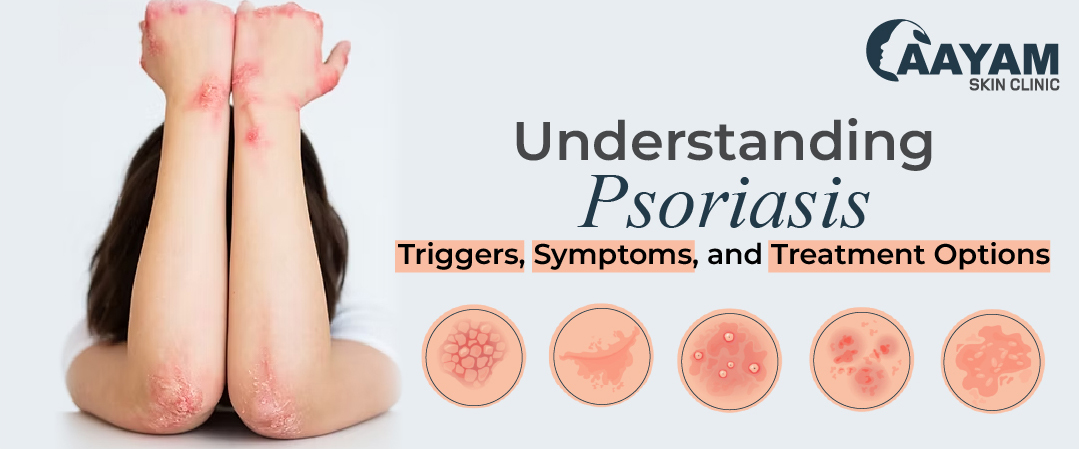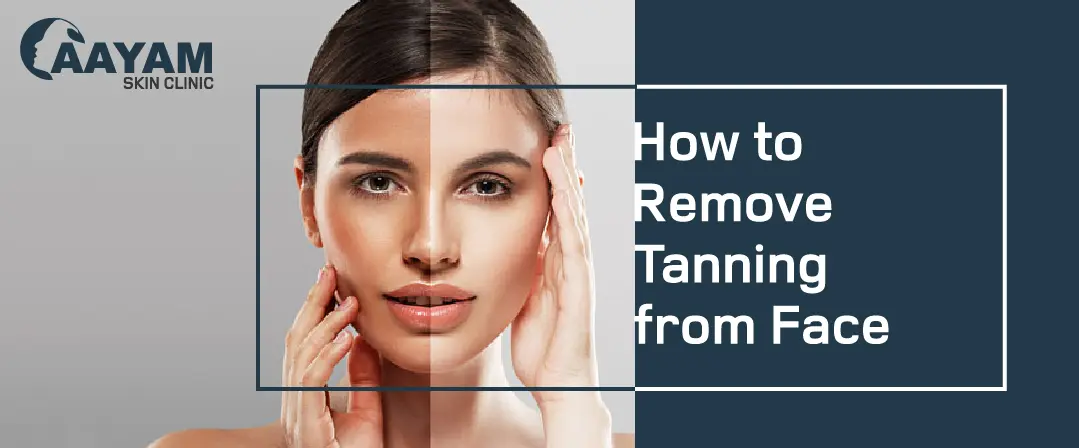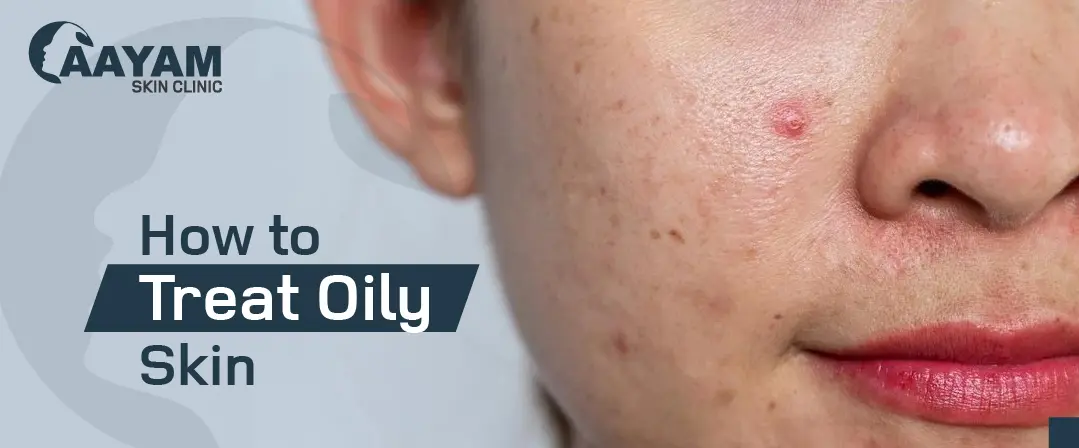Understanding Psoriasis: Triggers, Symptoms, and Treatment Options

Psoriasis is a skin problem many people have . It is not dangerous. But still it can make your skin itchy, dry, red, and flaky. Some people feel uncomfortable because of how it looks. But do not worry — it is not something you can catch or it is not your fault.
Let’s make it simple and easy:
We will talk about what causes psoriasis, what it looks like, and how you can treat it.
What is Psoriasis?
Psoriasis is a long-term skin condition. It means your body makes new skin cells too fast. Normally skin cells grow or fall off slowly. Psoriasis, new cells come too quickly, and they build up on the skin.
This causes:
- Red patches
- White or silver flakes
- Itching and burning
- Dry or cracked skin
It's not an infection. You can't spread it to someone else, and no one can give it to you.
What Can Trigger Psoriasis?
Even though it’s linked to your immune system and family history, some things can make it worse. These are called triggers.
Common trigger:
- Stress - Worry and anxiety can make it flare up.
- Infection - Like sore throat or cold.
- Skin injuries - Cuts, scrapes and even sunburns.
- Cold weather - Dry air makes skin worse.
- Some medicine - Like blood pressure or mood pills.
- Smoking and alcohol - These make it harder to control.
- Hormone changes - Puberty, pregnancy, or menopause.
Symptoms of Psoriasis?
Psoriasis can appear anywhere - elbows, knees, scalp, back, hands, feet, even nails.
Main signs:
- Red patches with white flakes
- Dry or cracked skin that might bleed
- Itching or burning
- Thick or bumpy nails
- Joint pain or stiffness (this may be psoriatic arthritis)
Sometimes it comes and goes. You might have it for a few weeks, then it disappears - only to come back later.
Types of Psoriasis
There are different kinds:
- Plaque psoriasis - Most common. Thick red skin with white flakes.
- Guttate psoriasis - Small red dots, often after a cold.
- Inverse psoriasis - Red, shiny skin in body folds (like underarms).
- Pustular psoriasis - White blisters (not from infection).
- Erythrodermic psoriasis - Rare but very serious. Skin turns red all over.
Knowing the type helps doctors give the right treatment.
Is There a Cure?
No full cure yet. but it can be controlled. Many people live best with psoriasis when they take care of their skin or follow treatment.
The goal is to:
- Slow down skin cell growth
- Reduce itching and flaking
- Keep skin soft and healthy
- Avoid flare-ups
Treatment Options
Depending on how bad it is, doctors may suggest one or more of these:
1. Creams and Ointments
These go directly on skin:
- Steroid cream - Reduce redness and swelling
- Vitamin D creams - Slow skin cell growth
- Coal tar - Helps with itching or scaling
- Salicylic acid - Removes flake
2. Light Therapy (Phototherapy)
Special light (UVB) helps slow down skin growth. Done in clinics or at home (with doctor's advice).
3. Pills or Tablets
For more serious psoriasis. These work inside your body to calm your immune system. Examples:
- Methotrexate
- Cyclosporine
- Acitretin
4. Biologics (Advanced Injections)
These are strong, new medicines. Given as shots. They target only the part of the immune system that causes psoriasis. They work well but can be expensive.
Always talk to your doctor before starting anything new.
How to Take Care of Your Skin
Even if you take medicine, daily care matters. Here’s what helps:
- Use thick moisturizers - After a shower is best.
- Don't use harsh soaps - Choose gentle, no-fragrance ones.
- Take warm (not hot) showers - Hot water dries your skin.
- Dress for the weather - Use gloves, scarves in winter.
- Relax - Try yoga, deep breathing, or whatever calms you.
- Eat well - Less sugar and processed food may help.
- Don't smoke and drink too much - These make psoriasis worse.
Final Thoughts
Psoriasis treatment is not just about your skin. It can affect how you feel about yourself. But here’s the thing — you’re not alone. Millions of people live with it and manage it well. So if you suffer from Psoriasis then you can get in touch with Dr. Ayam Clinic.
Remember
- Know your triggers
- Follow your treatment
- Take care of your skin
Don’t give up — there’s always a way to make it better
Be kind to your skin. Be kind to yourself. You got this.






